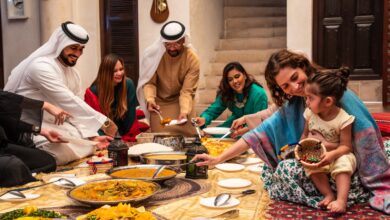A week into the holy month and expenses are mounting up for poor and middle-income families. For some, Ramadan has lost its joyful spirit due to the dwindling budgets and mounting prices.
The timing of Ramadan and the Eid celebrations right before the start of the academic year places additional pressure on limited income families. “We have to sacrifice the basic food items we are used to during Ramadan in order to maintain a financial balance in covering upcoming expenses,” says Nagwa Sayyed, a mother of four.
As meat prices reach LE80 per kilo, Nagwa has turned to her creativity and cooking sense to substitute other protein rich foods in the place of meat. Buying imported meat, which costs half the price of domestic meat, is another way for Nagwa to escape the domestic meat price hike.
According to Samia Abdel Rahman, a state employee, the rise in prices occurs due to the greed of traders and wholesalers who take Ramadan as an opportunity to boost their profits.
“Vegetable and fruit prices have skyrocketed! A kilo of tomatoes these days costs LE4, and similar prices can be seen for potatoes and cucumbers," Samia complains. "Other vegetables have reached LE9.”
Nagwa says that weeks before the Ramadan, she started to hoard food items in fear of the price hikes. “I bought extra amounts of sugar, rice, and cooking oil, which do not spoil, in order to save money,” she explains.
Samia has cut back on her usual plethora of Ramadan supplies, especially nuts and meat, and has also concocted new ways to cook in order to keep food on the table and the budget down. “I mix ground beef with plenty of rice, vegetables, potatoes, and onion for my kofta, which gives a feeling of satiation and reduces meat consumption," she says.
Zeinab Marzouk, a housewife, says that she has purchased only the specific amounts of food that cover her family’s consumption. “I used to buy extra products that were wasted each iftar. This year, some essential food prices have reached record levels, so I first measure how much food we eat daily to stay on budget,” says Marzouk.
Zeinab has also decided to reduce the number of courses served when she hosts iftar for others. “Hosting friends and family is an indispensible custom for me. I can't imagine Ramadan without gathering the whole family together. Of course, now I serve exactly the needed amount.”
According to the National Centre for Social and Criminal Research, at least 60 percent of food on the average Egyptian table goes to waste at this time of year. It is customary to have excessive quantities of food at an iftar during Ramadan, as it is a sign of generosity and, of course, wealth.
Lotfeya Hassan, a professor of home economics, advises cooking vegetables such as spinach and molokhia. Not only do these dark leafy greens contain a wide variety of valuable nutrients, but they are also cheaper than many other sources of iron and nutrients in the markets.
Lotfeya also recommends buying 1/4 kg of each of a various fruits to prepare fruit salad for dessert as a healthier and lesty costly option. With oriental desserts like basbousa and konafa also seeing a price hike this year, alternatives are always welcome.
Lotfeya's suggestions are indeed plentiful. “Pudding and dried apricot dessert can be easily prepared at home. Also, avoid commercial store-bought yogurt, which does not have the fresh healthy bacteria of homemade yogurt."
She also suggests using leftover bread crusts to make sweet rusks, breadcrumbs for breaded chicken and for a filler for kofta.
Lotfeya thinks that more budgeting options are out there and more families would benefit from advice on how to cook economically.
"The government should raise consumer awareness through the state media," she suggests. "They need to learn more about budgeting expenses for Ramadan supplies and how to get around financial burdens."




